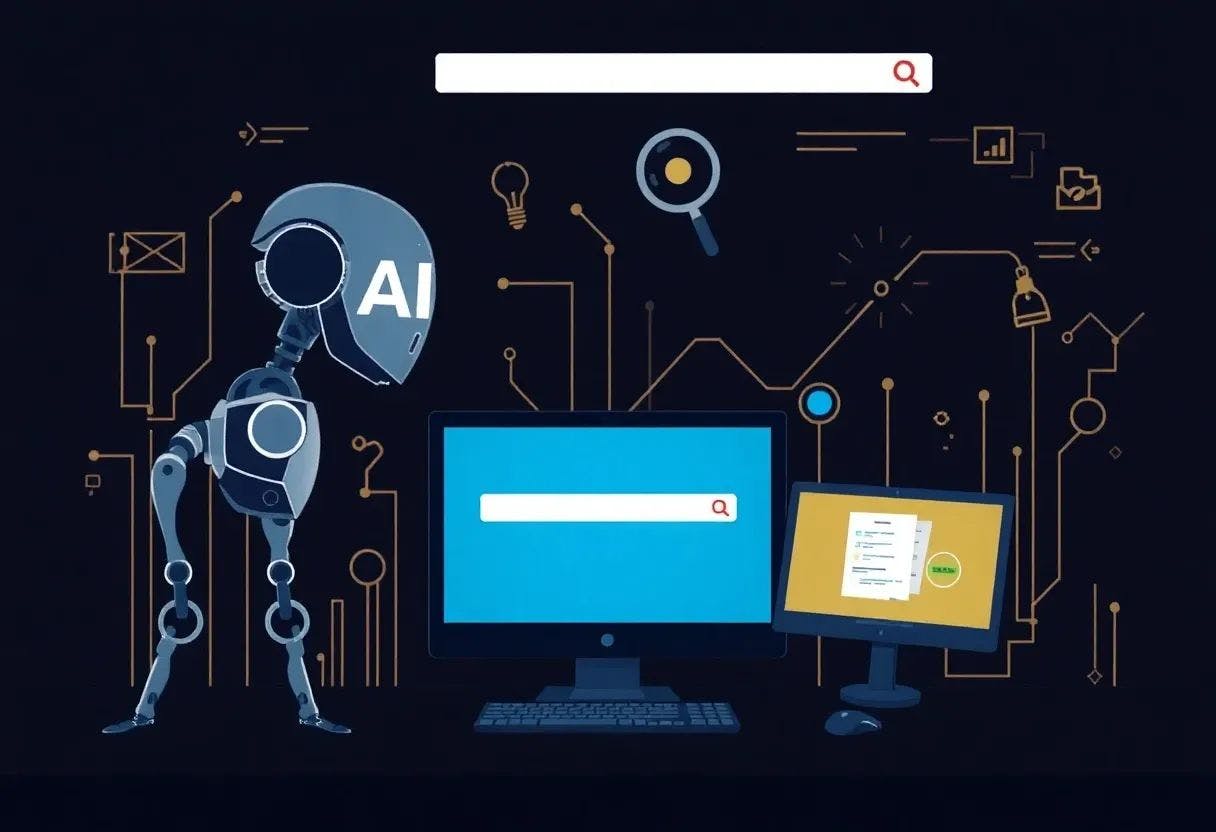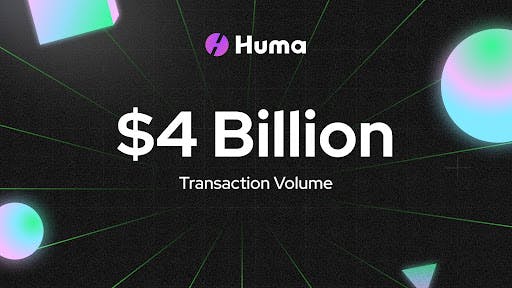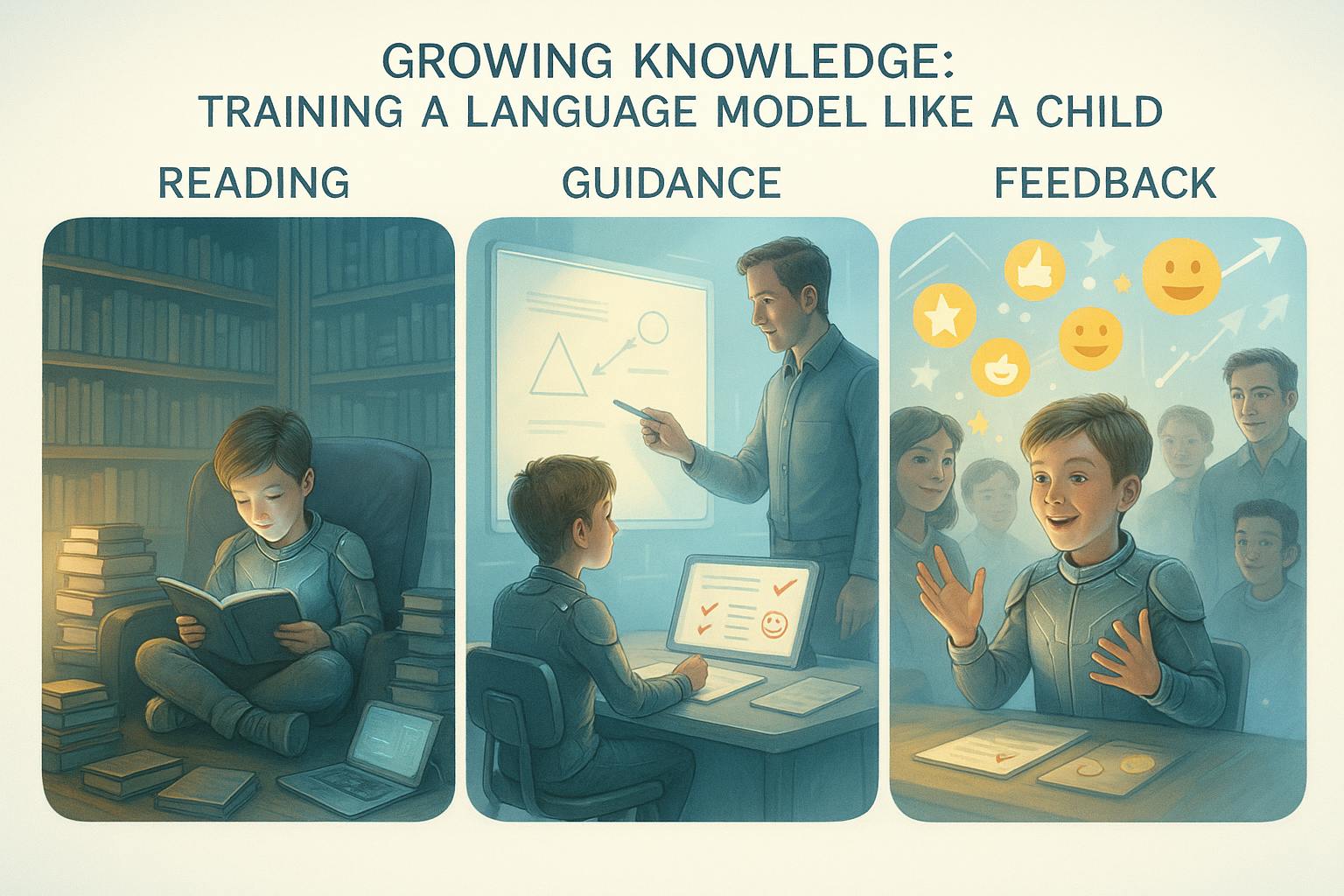Today, we witness how the era of generative AI is reshaping the way we search for information. Where we once fired off Google searches without a second thought, AI has now picked up the baton, helping people to find necessary information. But the topic is more nuanced than it may seem at first glance.
On the one hand, a recent survey shows that
So, is AI really the killer of traditional searching — or does it just complement it? Let’s dig into details, explore how both AI and search engines operate, and take a closer look at the strengths and shortcomings of generative AI.
The Ways Machines Think: Google vs. AI
It is important to first define key differences in the algorithms behind traditional search engines — with Google as one of the most prominent players — and generative AI. These two have fundamentally different technologies under the hood.
Search engines like Google were developed decades ago when the technological boom was only gaining momentum. They were designed with a clear purpose: to find existing information on the web. They are not supposed to generate information — instead, they scan a massive index of the internet, sort through billions of web pages, and rank them based on authority, relevance, and other signals. So, the system is optimized for retrieval and built to guide you toward the sources.
At their core, search engines rely on algorithms designed for ranking and indexing. For example, when you search for “the cheapest hotel in Miami,” the algorithm scans pages, indexing those with relevant keywords such as “cheapest hotel,” “Miami,” and “reviews.” Such factors as the credibility of the source (e.g., big hotel/booking aggregators), frequency of keyword appearance, and the quality of the overall content are ranked by the search engine to provide you with the most relevant results.
Conversely, generative AI models are powered by large language models (LLMs) and are designed not to retrieve content but to generate it. Their core function is to predict the next word in a sequence, paying attention to patterns from vast training datasets, which include books, websites, code, and more. As a result, they provide human-like, conversational responses that are context-aware.
Unlike search engines, which rely on ranking and indexing, generative AI models rely on probability and language modelling. Even when connected to real-time data through retrieval-augmented generation (RAG) systems, their output remains constructive — reflecting what they have absorbed without direct quotation from the source.
Say you are curious about how to make up a perfect resume. In that case, AI could pull data from various HR guides, stories, or even advice from experts to generate a custom list of “dos” and “don’ts” for you. However, factual consistency is where AI typically stumbles. But this is what I will talk about later.
Generally speaking, search engines lead you to the answers — generative AI builds them for you. Understanding this core difference is key to making the most of both — and now, let’s break down where AI truly excels over traditional search engines and where it falls short.
Search Smarter, Not Harder? The Trade-offs of Generative AI
At first glance, it might seem that AI is ready to replace conventional search bars — but is that really the case? This definitely calls for a deeper dive into the pitfalls and strengths of this cutting-edge technology, which could seem almost impeccable.
Unarguably, when it comes to efficiency, generative AI models are more advantageous. They are not only faster than traditional search engines but also deliver comprehensive and context-aware answers — all in one go. This results in
Still, the benefits do not come without caveats, do they? While AI may feel smarter and faster than traditional search engines, it can occasionally manipulate facts, miss recent updates, or offer too generalized data — a phenomenon
A Rivalry or a Dynamic Duo?
As it is becoming clear, AI offers undeniable advantages, but it is not without flaws. And this brings us to a crucial point: AI could be a great co-pilot, but it is not yet a full replacement. This is confirmed by the fact that
In fact, AI, with its development by leaps and bounds, has yet to reach the point where it can fully replace Google or other search engines. One day, when AI is completely integrated into our online experiences, the act of “Googling” may feel like a voice from the past. However, for now, it is just a partnership rather than a competition.











